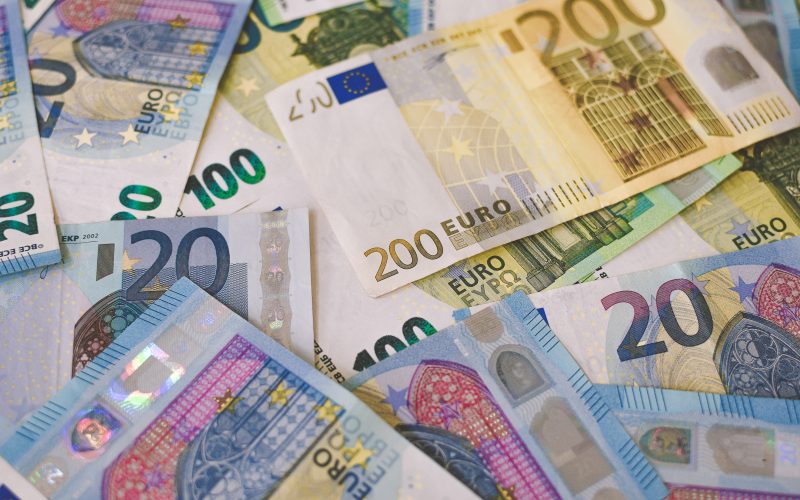The European Union is taking aim at so-called greenwashing in the bond market, with new Brussels-led regulations that will help ensure that financial products labeled as environmentally friendly are indeed helping to fight climate change. The proposal seeks to create a common framework of criteria for assessing and verifying ‘green’ investments, something that has been lacking in the EU’s capital markets. It also aims to combat greenwashing – when companies make deceptive or false claims about their environmental credentials – an issue which has been rampant in recent years. By introducing these new rules, Brussels hopes to make sure investors can trust green bonds, and move the EU one step closer towards achieving its 2050 carbon neutrality targets.
What is ‘greenwashing’?
“Greenwashing” is a term used to describe the act of misleading consumers about the environmental benefits of a product or service. It can take many forms, from false claims about a product’s energy efficiency to using green language to sell products that have little or no environmental benefit.
The European Commission has proposed new rules that would crack down on greenwashing in the EU bond market. The proposal would require issuers of “green bonds” to disclose more information about how the proceeds will be used and what impact they are expected to have. The goal is to make it harder for companies to mislead investors about the environmental benefits of their investments.
The proposal has been welcomed by some, who say it will help make the EU bond market more transparent and improve confidence in green investments. However, others have criticized the proposal, saying it could lead to greater regulation of the bond market and make it more difficult for companies to raise capital.
The problem with greenwashing in the bond market
The problem with greenwashing in the bond market is that it can lead to investors misallocating resources. This is because, when companies engage in greenwashing, they are often able to issue bonds at lower interest rates than if they were honest about their environmental practices. This creates a “green premium” that encourages companies to borrow more money than they otherwise would, leading to an overall increase in debt and potentially higher borrowing costs for everyone.
In addition, greenwashing can also distort the pricing of carbon-related investments, making it more difficult for investors to make informed decisions about how to allocate their resources. For example, if a company claims to be “carbon neutral” but is actually emitting large amounts of greenhouse gases, that company’s bonds may be artificially inflated in value. This can lead to investors overpaying for carbon-related investments and unintentionally funding environmentally harmful activities.
Lastly, greenwashing can contribute to public cynicism and mistrust of businesses and financial institutions. When companies are caught engaging in greenwashing, it damages their reputation and makes it harder for other companies that are genuinely trying to reduce their environmental impact to gain public trust. This cynicism can ultimately discourage investment in clean energy and other sustainable initiatives, which are critical for combating climate change.
Brussels’ solution to greenwashing
In an effort to clamp down on so-called “greenwashing” in the European bond market, the European Commission has proposed new rules that would require issuers to provide more information about the environmental credentials of their products.
The move comes as concern grows that some financial institutions are using green labels to lure investors into buying products that may not be as environmentally friendly as they claim.
Under the new proposals, which were unveiled on Wednesday, issuers of green bonds and other similar products would have to disclose more information about how the proceeds are being used, as well as providing a detailed breakdown of the carbon emissions reductions achieved.
The proposals still need to be approved by member states and the European Parliament before they can become law, but if enacted they would represent a major step forward in combating greenwashing in the financial sector.
How this will affect the European bond market
The European Commission has proposed new rules that would stop companies from “greenwashing” their bonds. The proposal is part of the EU’s plan to make its bond market more sustainable and transparent.
Critics say that the current rules allow companies to raise money by issuing bonds that are labelled as “green” or “sustainable”, even if the projects they are funding are not actually environmentally friendly. This practice, known as “greenwashing”, means that investors may not be getting the full picture when they invest in these kinds of bonds.
The new rules would require issuers to provide more information about the environmental impact of their projects, and would also create a new classification system for green bonds. This would make it easier for investors to understand exactly what they are buying, and would help to ensure that only genuine green projects receive funding.
The proposals have been welcomed by some in the industry, but there are concerns that they could make it harder for companies to issue green bonds, and that this could ultimately discourage investment in sustainability projects.
Conclusion
The European Commission’s new regulations for the European bond market is a good step in addressing the issue of greenwashing. The stricter rules will ensure that investors and companies alike are held accountable to their environmental commitments, helping to create a more sustainable future. Additionally, it provides an opportunity to reward companies who are making true effort towards sustainability with cheaper financing and access to capital markets. Ultimately, these changes could be beneficial for both environmentally conscious investors as well as companies looking to make a difference in our climate crisis.











